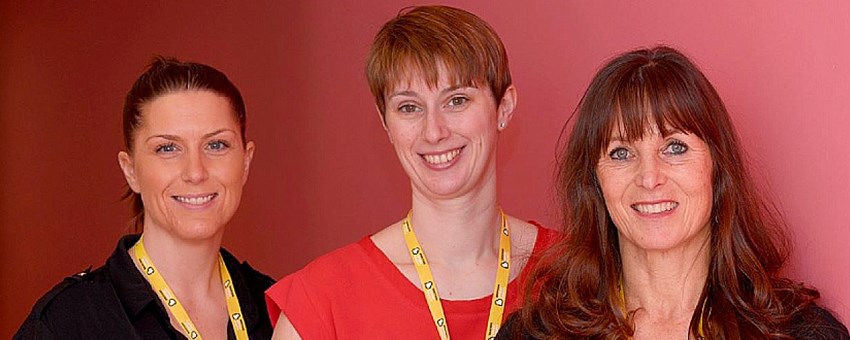Late Effects Pelvic Radiation Disease
PRD is a debilitating disease that can occur after radiotherapy for pelvic tumours such as bladder, bowel, prostate, anal, endometrial, vaginal or vulval cancer
People with PRD often have problems with bladder and bowel control and may also have their sex life, fertility, mobility and mental health affected.
Many need frequent and urgent access to a toilet and be unable to take part in normal activities .The Knock –on effect on relationships and finances can be devastating
Late Effects are troublesome symptoms that persist or present later than 6 months after the last radiotherapy treatment. They can present from 6 months to years after the last treatment.
Patients who have PRD can get help from a new service at the Beatson West of Scotland Cancer Centre (BWoSCC) called the Pelvic Radiotherapy Late Effects Service.
The primary aim of the late effects service is to support and enable cancer patients suffering from debilitating gastrointestinal (GI) symptoms which are a late consequence of pelvic radiotherapy.
This service provides a dedicated and comprehensive care package for patients delivered by a team of specialists.
The BWoSCC Late Effects team work together to provide a multidisciplinary approach, the team are:
Dr Sally Darnborough –Clinical Lead
Stephanie Millar –Therapy Radiographer
Carol Smeaton –Clinical Nurse specialist
If you have completed radiotherapy treatment for a pelvic tumour more than 6 months ago and you have bowel symptoms that affect your life such as:
Diarrhoea, bladder/bowel Urgency, Incontinence or abdominal pain
Ask your team at the Beatson about the Late effects clinic
The service runs 2 days a week at the BWoSCC, we use face to face clinic appointments and telephone consultations as appropriate.
You might require some specialist investigations not available at the Beatson hospital so might need to attend other hospitals in Glasgow as an Out Patient.
The service was set up in 2018 in partnership with Macmillan Cancer Support and The Beaston Cancer charity
We hope that the development of this innovative service will support patients to live as healthy and as good a quality of life, for as long as possible.
By including patients in their treatment plan, the aim is to empower and educate them about their ongoing health. This new service endeavours to meet specific patient needs which, if left unaddressed, can damage their ability to lead active and healthy lives.
Further information on Pelvic Radiotherapy Late Effects can be found here:
1) Macmillan
2) Pelvic Radiation Disease Association

